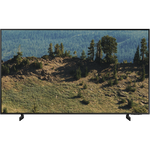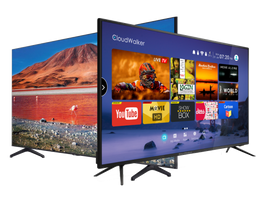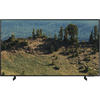A comparison of specs, key information, reviews, and best pricing from top retailers
Last updated -- hours ago | Report incorrect information
What we think

The PerfectRec TV team Learn more
Updated January 10, 2024·
The LG UR9000 is generally less expensive than the Samsung AU8000. When choosing between these TVs, consider the following: If you prioritize streaming and gaming, the LG UR9000 may suit you with better out-of-the-box colors and response time. However, if you watch a lot of news, talk shows, or realities, and desire better contrast and black uniformity for a good experience in darker viewing settings, the Samsung AU8000 could be the better choice. It also supports HLG, which could enhance your viewing experience with certain types of HDR content. Both TVs may not be ideal in very bright rooms, but Samsung has a slight edge in reflection handling. Give Feedback
this description is based on the product variant with some specs and product variant with some specs. At the time of writing, the variant with some specs cost some dollars and the variant with some specs cost some dollars.
Advantages of the LG UR9000 (LCD)
- Very good motion processing
- Good viewing angle
Advantages of the Samsung AU8000 (LCD)
- Good for upscaling
- Good reflections
Key differences
Picture Quality
5.4


6.6
3.31/10
CONTRAST
6.71/10
6.0/10
COLOR VOLUME SCORE
6.3/10
LED
PANEL TYPE
LED
IPS
PANEL SUB-TYPE
VA
The Samsung AU8000 (LCD) has only fair picture quality, while the LG UR9000 (LCD) has poor picture quality.
Movies & TV
5.1


5.9
3.31/10
CONTRAST
6.71/10
5.3/10
BLACK UNIFORMITY
6.9/10
5.7/10
UPSCALING
7.5/10
Yes
HDR10 SUPPORT
Yes
No
HDR10+ SUPPORT
Yes
No
DOLBY VISION SUPPORT
No
The Samsung AU8000 (LCD) and LG UR9000 (LCD) are both poor for movies & TV, though the Samsung AU8000 (LCD) is somewhat better.
The LG UR9000 has a lower contrast and poor local dimming, resulting in less depth and detail in dark scenes, which is detrimental to watching movies and cinematic TV; it also has subpar black uniformity leading to inconsistent blacks across the screen. In contrast, the Samsung AU8000, while having better contrast and black uniformity, lacks any form of local dimming, which compromises the ability to produce true blacks and may lead to washed-out dark scenes, again affecting the quality of movie and cinematic content.
Cartoons & Animation
5.8


6.9
5.8/10
COLOR GAMUT SCORE
6.1/10
6.0/10
COLOR VOLUME SCORE
6.3/10
6.6/10
SDR BRIGHTNESS SCORE
7.1/10
8.5/10
COLORS OUT OF THE BOX SCORE
7.2/10
7.7/10
GRAY UNIFORMITY
6.8/10
The Samsung AU8000 (LCD) is only fair for cartoons & animation, while the LG UR9000 (LCD) is poor.
The LG UR9000 is not ideal for watching cartoons and animation due to poor color gamut, which means it cannot display a wide range of colors effectively. On the other hand, the Samsung AU8000 provides a fair viewing experience because it has a better color gamut, allowing for more vivid and varied colors when watching dynamic content like cartoons.
News, Talk, & Other TV
5.5


6.7
6.6/10
SDR BRIGHTNESS SCORE
7.1/10
5.7/10
UPSCALING
7.5/10
The Samsung AU8000 (LCD) is only fair for news, talk, & other TV, while the LG UR9000 (LCD) is poor.
The LG UR9000's poor performance for watching news and TV programs stems from its less effective upscaling of low-resolution content and subpar color accuracy out of the box. In contrast, the Samsung AU8000 offers better upscaling and more accurate colors when it is fresh out of the box, which translates to a fairer viewing experience for similar content.
Cost
$797


$948
$400
$600
$800
$1,000
$1,200
$1,400
The LG UR9000 (LCD) has a price of $797 and the Samsung AU8000 (LCD) costs $948.

Let Us Help Find Your Perfect TV
Find your new TV
Key similarities
Sports
6.8


6.5
8.0/10
MOTION PROCESSING
6.0/10
60Hz
REFRESH RATE
60Hz
10.0/10
INPUT LAG SCORE
10.0/10
5.7/10
UPSCALING
7.5/10
6.6/10
SDR BRIGHTNESS SCORE
7.1/10
Yes
HLG SUPPORT
Yes
The LG UR9000 (LCD) and Samsung AU8000 (LCD) are both only fair for sports.
The LG UR9000 has fair motion processing and a poor response time, which can cause some blur during fast-moving sports, but its wide viewing angle may keep the image consistent for groups watching together. In contrast, the Samsung AU8000 has a quicker response time, potentially reducing blur, yet its narrower viewing angles and weaker motion processing can result in a less optimal viewing experience from off-center positions and with fast-paced scenes.
Gaming
5.7


5.8
6.0/10
RESPONSE TIME SCORE
5.9/10
10.0/10
INPUT LAG SCORE
10.0/10
8.0/10
MOTION PROCESSING
6.0/10
15.0/100
GAMING LOCAL DIMMING
0.0/100
6.3/10
GAME HDR BRIGHTNESS SCORE
5.8/10
The Samsung AU8000 (LCD) and LG UR9000 (LCD) are both poor for gaming.
The LG UR9000 has a fair response time and the best input lag, making it suitable for casual gaming, while the Samsung AU8000, with poor response time and the best input lag, may lag behind in terms of smooth motion during fast-paced games. Both TVs have 60Hz refresh rates which are standard but not ideal for high-frame-rate gaming that demands faster refresh rates for smoother gameplay.
Bright Room
5.8


6.3
7.4/10
VIEWING ANGLE
5.5/10
6.6/10
SDR BRIGHTNESS SCORE
7.1/10
6.2/10
HDR BRIGHTNESS SCORE
5.7/10
6.6/10
REFLECTIONS SCORE
7.8/10
Although they have very similar scores, PerfectRec considers Samsung AU8000 (LCD) to be only fair for bright room, while the LG UR9000 (LCD) is poor.
The LG UR9000 has a lower SDR and HDR brightness and a poorer performance handling reflections compared to the Samsung AU8000, making it less suitable for bright rooms. While both TVs have issues with contrast and color performance, the AU8000's better handling of reflections and higher brightness levels give it an edge for viewing in well-lit conditions.
Give feedback
We’re constantly working to improve.
How the LG UR9000 (LCD) and the Samsung AU8000 (LCD) compare to other TVs
Spec Comparison
| LG UR9000 (LCD) | Samsung AU8000 (LCD) |
GENERAL | |||
|---|---|---|---|
| Price | |||
$797 | $948 | ||
Brand | |||
Brand | LG | Samsung | |
Release Date | |||
Release Date | March 5, 2023 | March 5, 2021 | |
Full name | |||
Full name | 75UR9000 | UN75AU8000 | |
Screen Size | |||
Screen Size | 75" | 75" | |
Screen Resolution | |||
Screen Resolution | 4K | 4K | |
TV FEATURES | |||
|---|---|---|---|
Operating System | |||
Operating System | WebOS | Tizen | |
Sound Quality Score | |||
Sound Quality Score | 5.4/10 | 6/10 | |
NextGen Ready | |||
NextGen Ready | No | No | |
HDMI Ports | |||
HDMI Ports | 3 | 3 | |
Coax Ports | |||
Coax Ports | 1 | 1 | |
DISPLAY QUALITY SCORES | |||
|---|---|---|---|
Picture Quality Score | |||
Picture Quality Score | 5.5/10 | 6.6/10 | |
Bright Room Score | |||
Bright Room Score | 5.9/10 | 6.4/10 | |
Gaming Score | |||
Gaming Score | 5.8/10 | 5.8/10 | |
Movies & TV Score | |||
Movies & TV Score | 5.1/10 | 5.9/10 | |
Sports Score | |||
Sports Score | 6.8/10 | 6.5/10 | |
PHYSICAL | |||
|---|---|---|---|
Dimensions w/o Stand (H x W x D) | |||
Dimensions w/o Stand (H x W x D) | 37.9" x 66" x 1.2" | 37.8" x 66" x 1" | |
Dimensions with Stand (H x W) | |||
Dimensions with Stand (H x W) | 40.8" x 66.7" | 39.5" x 66" | |
Weight without Stand | |||
Weight without Stand | 72.8 lbs | 70.8 lbs | |
VESA Mount | |||
VESA Mount | 400 x 400 | 400 x 400 | |
DISPLAY | |||
|---|---|---|---|
Color Depth | |||
Color Depth | 10 bit | 10 bit | |
Black Frame Insertion | |||
Black Frame Insertion | No | Yes | |
Auto Low Latency Mode | |||
Auto Low Latency Mode | Yes | Yes | |
Contrast | |||
Contrast | 3.3/10 | 6.7/10 | |
Local Dimming | |||
Local Dimming | 3.3/10 | 2.5/10 | |
SOUND | |||
|---|---|---|---|
Speaker Setup | |||
Speaker Setup | 2.0 | 2.0 | |
Speaker Power | |||
Speaker Power | 20 W | 20 W | |
Dolby Atmos | |||
Dolby Atmos | Bypass only | Bypass only | |
DTS:X | |||
DTS:X | No | No | |
Shopping
Samsung AU8000 (LCD)
See more
Dig into reviews and images
USA Today
Michael Desjardin | April 2023
"To put it directly: you’d never see a mid-range 4K TV hitting this black levels half a decade ago. AU8000 plays the part of a higher-end TV thanks to its sleek design. If you’re upgrading to a smart TV for the first time, the software is a great way to dip your toes in the streaming water."
Get a great deal on the LG UR9000 (LCD) or the Samsung AU8000 (LCD)
About LG
LG, a prominent TV brand from Korea, has played a significant role in popularizing OLED TVs. OLED technology is hailed as the future of TV technology. Their TVs employ WebOS, a proprietary smart TV software that not only offers seamless functionality but also includes gaming-specific features, earning praise from players worldwide. Often regarded as the gateway to unparalleled viewing experiences, LG's mid-range OLEDs come highly recommended, making them a worthwhile investment for those willing to stretch their budget for superior quality.
About Samsung
Samsung, a South Korean electronics manufacturer, holds the title of being the largest global TV vendor in terms of units sold. They offer a diverse lineup of TV products that cater to various budget ranges. A notable achievement in recent years is the development of Quantum Dots, a technology that enhances color reproduction, resulting in richer and more vibrant hues. Samsung TVs are well-regarded for their high manufacturing quality and user-friendly software, making them an excellent choice for consumers seeking an intuitive viewing experience.
Give feedback
We're constantly perfecting our model
TV guides you might be interested in
More comparisons for you
FAQs
FAQs about TVs
Why trust us
This information was produced and vetted by the PerfectRec TVs team. We are a product research and recommendation organization that meticulously reviews and evaluates the latest TV information and makes it digestible for you.
By the numbers
385
TVs evaluated
33,110
TVs stats compiled
21
Proprietary TVs ratings developed
133,830
Recommendations made
20,075
Consumer hours saved
About the TV team
Joe Golden, Ph.D
CEO and TVs Editor
Joe is an entrepreneur and lifelong electronics enthusiast with a Ph.D in Economics from the University of Michigan.
Jason Lew
Staff Expert & Software Engineer
Jason is a staff expert and software engineer that has been making laptop recommendations for 7 years and moderates one of the largest laptop subreddits.
Chandradeep Chowdhury
Staff Expert & Software Engineer
Chandradeep is a staff expert and software engineer and expert in televisions and monitors. He’s been making monitor recommendations for ten years.
Jaime Roldán
TVs Expert
Jaime is a Colombia-based TV expert. He is an electronics engineer with 8 years of experience in the telecom sector and has been making TV recommendations for 12 years.







